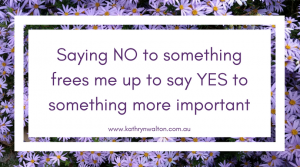“A good laugh and a good sleep are the best cures in the doctor’s book” (Irish Proverb)
There’s no doubt about it, a good night’s sleep can make all the difference to how we feel and how well we function. In this article I share my top ten tips for a better sleep.
Sleep affects mental and physical health
Sleep is a vital ingredient for physical and mental wellbeing, yet 33-45% of adults report having inadequate sleep*. The consequences of poor sleep are not just cosmetic (“Oh gawd, look at the dark circles under my eyes!”). Of more serious concern to the individual and the whole community are health problems, worker safety and performance, and risk of motor vehicle accidents.
Sleep is complicated!
The research tells us there are many factors that affect sleep quality and quantity. Now everyone’s different and some of us are more sensitive to some of these factors than other people. It’s not a black and white science that we’re dealing with – many of the studies have been done in clinical settings (not in the home) and have tested for more extreme conditions of one factor at a time, rather than a mixture of different factors that we’re more likely to experience in our everyday lives. Sleep is a complicated process. The cause and effect is not always direct and clear, so what seems helpful at first glance (for example drinking alcohol or smoking before bed), may actually be masking the issue (such as stress and anxiety).
Find out what works for YOU
So part of the trick to getting a good sleep is getting to know yourself first including what’s most likely to help and hinder your own situation. The research base is a great place to start experimenting to see what conditions work best to give you a refreshing night’s sleep.
Here are my top ten tips to improve your chances of a fabulous sleep:
1. Feelings of safety
If you don’t feel safe, have a chat with someone you trust, or your doctor or a counsellor to develop a plan to feel safer.
2. Caffeine, alcohol, tobacco and other drugs … and food
Substances such as caffeine (think coffee, chocolate and energy drinks), alcohol, tobacco and other drugs may bring a temporary feeling of relaxation, but they can also disrupt hormone production, sleeping rhythms and other health issues. Likewise, your eating habits may have an impact on your sleep. Avoid spicy foods if this causes discomfort and avoid large meals and drinks at bedtime. There is some evidence that certain foods might help you sleep better – wholegrains; some nuts, fruits and dairy foods; and caffeine-free tea.
3. Pain levels
Chat with your doctor or health practitioner if pain is preventing a good night’s sleep. Pain is a complex phenomenon with a wide range of causes. There are many different pain management techniques to choose from – find out what works best for your overall health and wellbeing.
4. Medication
Some medications can make you feel drowsy, and others can make you feel more alert. Check in with your doctor or pharmacist for advice on anything to do with medication.
5. Exercise and napping
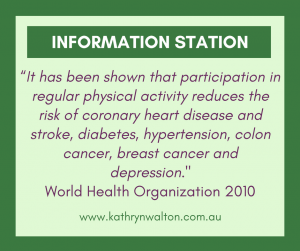 In my professional (and personal) experience, one of the most effective ways to improve sleep is to increase your exercise, especially in the morning. Moving around throughout the day and reducing how long you are sedentary for is also helpful. Some people find it helpful to have a short nap during the day, but later in the afternoon may disrupt your night time sleep.
In my professional (and personal) experience, one of the most effective ways to improve sleep is to increase your exercise, especially in the morning. Moving around throughout the day and reducing how long you are sedentary for is also helpful. Some people find it helpful to have a short nap during the day, but later in the afternoon may disrupt your night time sleep.
6. Light and dark
Get yourself some morning light. This triggers the production of melatonin, a hormone responsible for your inner body clock – you’ll feel sleepy when it gets dark in the evening. Despite many people using TV and devices just before bed or even while they are in bed, the type of light they emit and the stimulation they provide can really impact your sleep. The recommendation is to turn devices off an hour or so before bed and don’t take them into your room.
7. Stress Management
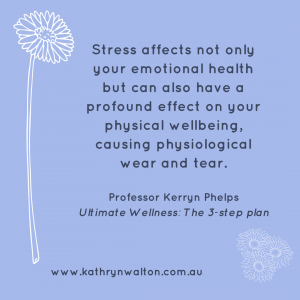 Manage your daytime stresses so that you’re not holding that tension when you go to bed. Learn body relaxation techniques as well as mind relaxation techniques. Mindfulness training is particularly useful. If you’re locked into a vicious cycle of insomnia, it can be helpful to have some cognitive behavioural therapy sessions to power up your thinking and make positive changes to your sleep.
Manage your daytime stresses so that you’re not holding that tension when you go to bed. Learn body relaxation techniques as well as mind relaxation techniques. Mindfulness training is particularly useful. If you’re locked into a vicious cycle of insomnia, it can be helpful to have some cognitive behavioural therapy sessions to power up your thinking and make positive changes to your sleep.
8. Routine
Find an evening routine that’s helpful and then follow it. This might take some experimenting to see what soothes you and what stimulates you. Make your routine a habit, and remember that it can takes weeks of adjusting to a new habit or routine before you see the full results.
9. Environment
Are you comfortable in bed? Is it too hot or cold? Too soft or hard? Noisy? Smelly? Too light or too dark? Is it relaxing and comforting? Avoid doing work or studying in your bedroom as this can build an association with a wakeful or stressed state.
10. Caring Responsibilities
Are you responsible for the care or wellbeing of other people, livestock or pets through the night? If possible share your caring responsibilities with someone else so you can take turns at sleeping a bit longer, or a bit better.

So there you have it – my top ten tips to improve your sleep, and the best thing about it is you can start experimenting right away! If your sleep doesn’t improve after trying these strategies, make sure you have a chat with your doctor. There are some medical and psychological conditions that may need more specialised interventions to get you the super sleep you deserve!
*”Report to the Sleep Health Foundation 2016 Sleep Health Survey of Australian Adults” Robert Adams, Sarah Appleton, Anne Taylor, Doug McEvoy, and Nick Antic (The University of Adelaide, The Adelaide Institute for Sleep Health) Read the report
Discovering mountain biking as life’s ultimate parallel universe in her middle age,  Kathryn Walton shares information and reflections in Daisy Spoke that connect, inspire and self-empower women to make healthy choices for themselves. She integrates her love of physical exercise, family, nature, gardening and creative arts with her professional background in mental health social work to facilitate change with individuals, groups and communities of women who are committed to living life to the full.
Kathryn Walton shares information and reflections in Daisy Spoke that connect, inspire and self-empower women to make healthy choices for themselves. She integrates her love of physical exercise, family, nature, gardening and creative arts with her professional background in mental health social work to facilitate change with individuals, groups and communities of women who are committed to living life to the full.


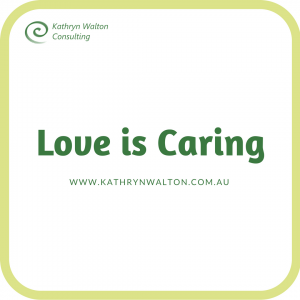

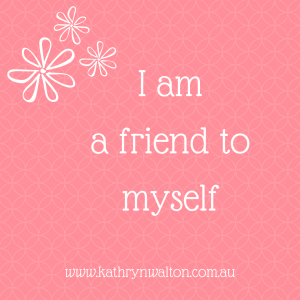 The way we think is closely related to the way we have been socialised when were younger, with the added layer of personality thrown in. So it’s no surprise that women often share certain beliefs, assumptions and thinking patterns related to self-care – it’s selfish to do something for myself; people will think I’m selfish / not coping; time and money should be spent on something or someone else who needs it more than me; I don’t have enough time or energy; I should just soldier on like everyone else does …..
The way we think is closely related to the way we have been socialised when were younger, with the added layer of personality thrown in. So it’s no surprise that women often share certain beliefs, assumptions and thinking patterns related to self-care – it’s selfish to do something for myself; people will think I’m selfish / not coping; time and money should be spent on something or someone else who needs it more than me; I don’t have enough time or energy; I should just soldier on like everyone else does …..